How to Start a Poultry Business
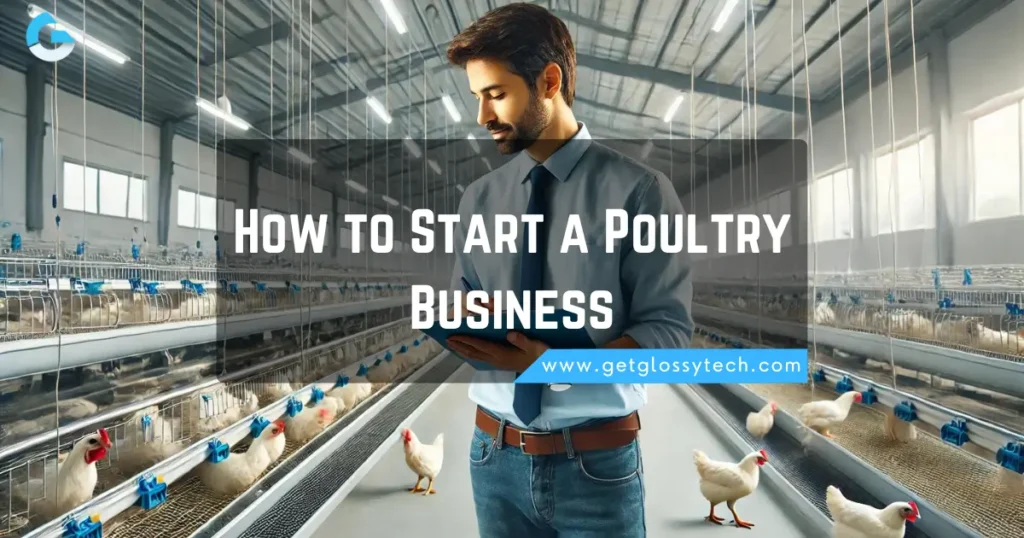
Entering the poultry farming business presents a profitable opportunity within the agricultural sector, especially in the wake of the COVID-19 pandemic which has shifted the demand for poultry products. As families seek reliable food sources, the industry sees a rising demand for birds, including chickens, turkeys, broilers, and eggs.
A strategic plan that encompasses chicken farming business plans and understands the value of production and egg production can set the foundation for a robust poultry farm business. Whether you are a new poultry farmer or looking to scale, knowing the fundamentals and preparing for potential challenges is crucial for enduring success in this vibrant industry.
A Real Life Example
In the early days of Merrifield Farm in Canada, Ryan Merrifield and his family faced their share of initial hiccups and failures, experiencing the loss of hundreds of chicks. These early mistakes taught them the capacity needed to raise up to 3000 broilers a year successfully.
By making an additional investment, they built a new coop that accommodates 800 ten-pound chickens, which helped reduce many issues and resulted in fewer losses. This shift in strategy brought down costs substantially, allowing them to increase profits and further ensure the business’s sustainability.
Their journey illustrates the importance of understanding the do’s and don’ts crucial for a profitable start in the poultry farm business.
How to Initiate a Business Plan for Poultry Farming
Starting a poultry farming business can be extremely lucrative, especially if you manage your farm properly. Whether you have a small farm or a big one, the process of poultry farming requires thorough planning to become profitable quickly.
As a poultry farmer, you’ll find that chicken farming offers the finest opportunity to earn a good amount of money in a short period of time. By focusing on every detail of the process of poultry, from the care of the chicks to the setup of the farm, you can ensure your venture’s success.
1: Sales at an Exceptionally Lucrative Rate

To maximize profit in poultry farming, focus on the market price and producing healthy, fully grown chickens. Sell your birds when they reach peak market value—usually around 50-60 days.
For instance, raising 12,000 chickens and selling them completely at the optimal time can yield about $120,000 if each chicken fetches $10 to $11. Regularly monitoring the price and adjusting your sales strategy can significantly boost your farm’s earnings.
2: Rapid Expansion Rate
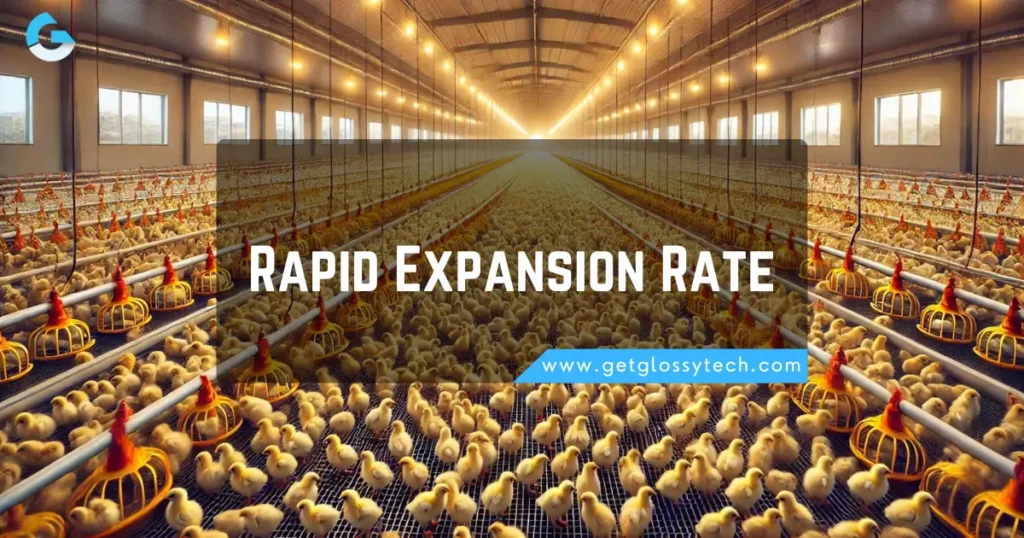
Embarking on a poultry farming business offers a swift growth rate:
- 21 days to hatch eggs boosts flock size quickly.
- Birds mature at 27 to 28 weeks, ready to lay eggs and double your stock yearly.
- 31 weeks marks when chickens are fully market-ready, maximizing income potential.
Challenges such as diseases and mortality require:
- Strict management practices.
- Regular vaccination to mitigate risks and ensure healthy poultry production.
Understanding these dynamics helps manage the uncertainties of poultry farming, securing a stable market presence.
3: Rapid Multiplication and High Populations
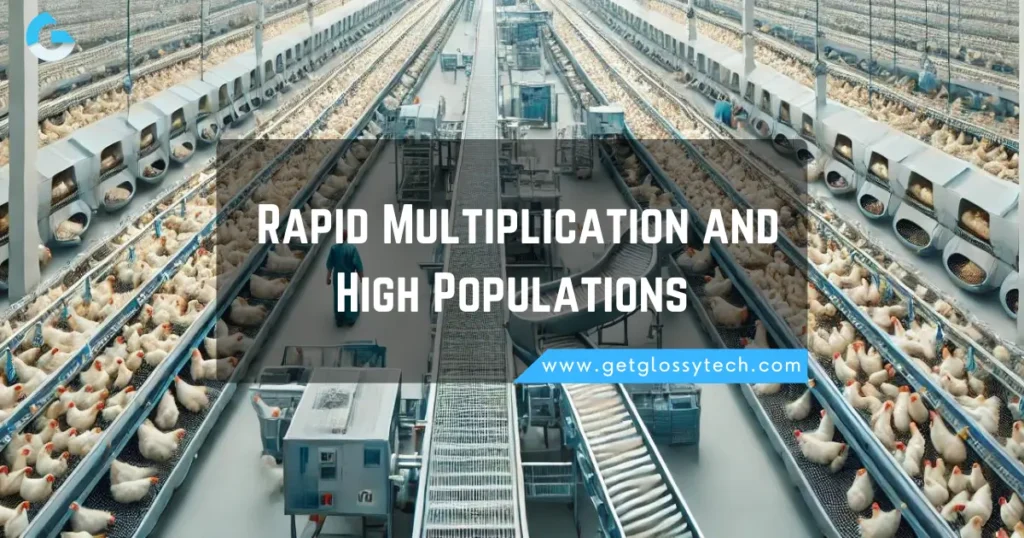
Focusing on layer chickens like the California white birds can quickly expand your business in poultry farming. These birds can produce around 325 eggs per year, starting as early as 21 weeks old.
Efficient management can lead to harvesting up to 12,000 eggs in a week from 500 birds. This rapid multiplication of eggs and chicks every three days offers a swift growth trajectory for your poultry venture, ensuring a steady increase in bird population and egg quality throughout the year.
4: The Poultry Egg Industry is Vast

Embarking on a poultry farming business taps into the lucrative poultry egg market. Every crate of poultry eggs—whether smaller eggs or a bigger one—can significantly boost your profit. With the right poultry farming business plan, even a modest farm can earn a substantial dollar amount.
For instance, selling 30 crates a month at $500 each could yield about $12,000 yearly, scaling up as you expand. This approach makes poultry farming an easy and profitable venture, ideal for anyone looking to start a sustainable meat business.
Before You Begin Planning Your Poultry Farming Venture
Before You Begin Planning Your Poultry Farming Venture Here are some important points to consider :
1: Choose Your Poultry Bird Type
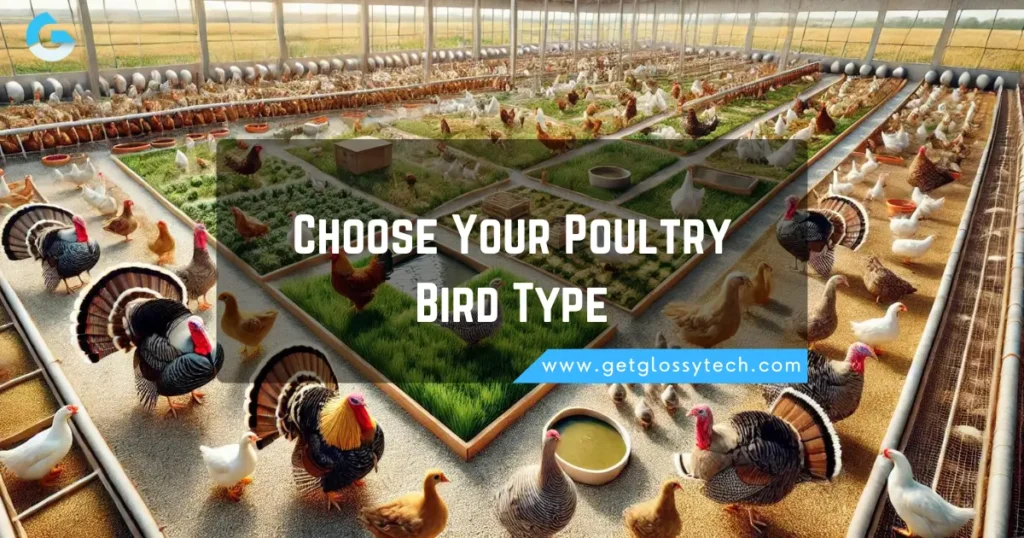
When you start a poultry farm, one of the first steps is to choose the type of birds you want to rear. This selection is crucial because it sets the foundation for your business.
Whether you’re considering broilers for meat production or layers for egg production, each bird serves a different purpose. You can also explore other options like
- Ducks
- Geese
- Quail
- Guinea fowl
- Turkeys
- Pigeons
- Peacocks
The choice is totally up to you! For those just starting, it might be wise to begin with two to three birds and then include more birds as your business grows. This approach allows you to manage your resources better and learn the ropes of poultry farming without becoming overwhelmed.
Remember, the types of birds you rear should reflect your market’s demand and your ability to care for them. Starting small and expanding as you gain confidence and experience is a practical way to grow your poultry farm business.
2: Determine the Location for Poultry Farming

Selecting the right location for your poultry farm business is key to minimizing start-up costs and maximizing efficiency:
- Rural Area Benefits: Cheaper land and labour, plus fewer regulatory hurdles.
- Transportation Access: A location with a road nearby helps reduce costs associated with moving products to towns and cities.
- Urban Area Challenges: Higher land costs, potential health issues due to proximity to residential areas, and more difficulties with zoning.
Always check Govt. regulations to ensure your farm is compliant and avoid costly mistakes in site selection. Proper planning can have a direct impact on your business success, helping you efficiently approach your target consumers.
3: Consider The Investment

Starting a poultry farm business requires careful planning and enough funds to cover basic needs. Here’s what you need to consider:
- Start small or decide how much capital you can afford to invest in your poultry farm.
- Essential equipment includes feeders, drinkers, perches, light systems, incubators, heaters, and brooders.
- You’ll need land bought especially for the farm and funds to pay salaries for staff and labourers at the specified location.
- A clear business plan helps manage capital, showing the amount needed to run the farm successfully.
- Think about where to source funds to cover everything, including daily operations.
Make sure your business plan outlines how much capital is required and the amount you need to keep the business running smoothly.
4: Identify Your Focus Area

When starting a poultry farming business, it’s important first to identify your focus area. The poultry industry is vast, with multiple sectors like
- Broilers for meat production
- Layers for egg production
- Poultry feed production
If you’re considering chicken farming, think about whether you want to focus on
- Raising chicks
- Incubating eggs
- Running a hatchery
This helps you choose the right path for your poultry farm company. Some people are drawn to the broiler-growing business because it involves broiler breeding for chicken meat production, but remember, it can have high costs and risks.
Next, set clear goals for your poultry business. Whether you’re into meat processing or egg processing, or you’re exploring layer chicken breeding or broiler breeding, you should have a clear goal to concentrate on.
If you’re into broilers, start by establishing contacts with broiler companies to buy quality chicks and ensure your broiler business remains feasible. For those interested in egg production, breeding layers or setting up an egg processing unit could be your niche.
Whatever your niche, ensure you maintain professionalism and a strong focus on your chosen areas to carve out a successful path in this wide industry.
5: Choose the Best Cage Style for Your Poultry

Choosing the right poultry cage is an elementary step when you start a poultry farm business. The health and comfort of your chickens depend on the cage type you select. You can get ideas by visiting nearby farms to inspect cages and understand poultry cage basics.
Cages should keep birds safe from adverse weather conditions, pests, and diseases. Options include
- Extensive
- Semi-extensive
- Intensive poultry housing systems
Such as the deep litter housing system for broilers or the battery cage-type poultry house for egg production.
When planning your chicken farm, calculate the necessary space: about 500 square feet can house 1000 broilers. Include extra room for walkways and ensure proper lighting and ventilation.
The type and size of cages you choose will affect your poultry business plan, including the cost of chicken cages. Careful selection will help raise chickens effectively, so choose a style that balances comfort, safety, and efficiency for your poultry business.
Starting a Poultry Farm: A Step-by-Step Business Guide
Here Are The Rules That You Should Follow While Pondering How To Start Poultry Farming
1: Master Poultry Farming Techniques
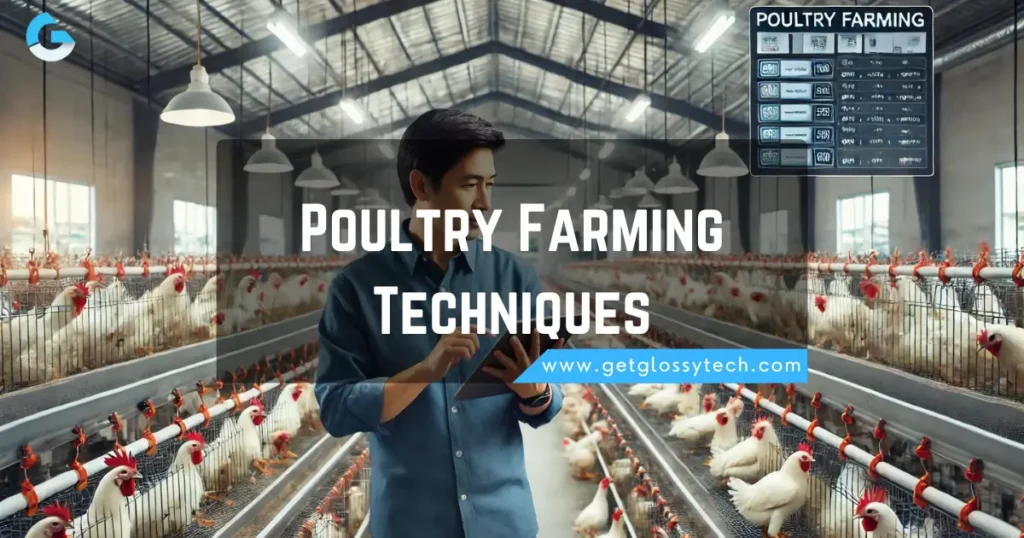
Starting a poultry farm business is more than just raising chicks; it involves mastering essential basics and understanding the intricacies of the trade. To successfully operate your farm, engaging in proper training from a dependable farming institution is crucial.
Poultry farming is a delicate business, especially during the early stages when chicks are vulnerable and can easily die, leading to potential losses. For aspiring farmers, enrolling in comprehensive poultry farming courses is advisable.
These courses cover farming basics, including the breeding of chicks. Always consult with experienced farmers for practical advice and basic tricks on how to handle chicks to minimize risks and enhance productivity.
2: Design Your Farm Emblem

Designing your farm emblem is a pivotal step in establishing your poultry farm. A distinctive name and logo not only make your farm stand out but also enhance your business visibility across marketing materials like visiting cards and websites.
Choosing a unique emblem that reflects the type of poultry farming you engage in can significantly impact how customers perceive the quality and professionalism of your farm products in the market.
3: Construct the Necessary Framework

When starting a poultry farming business, the choice of a housing system plays a crucial role in the overall health and productivity of your chickens.
Avoiding danger and maximizing profit begins with selecting the right management system. Among the most common types of poultry housing systems, you will find:
- Deep litter: This method involves a thick layer of bedding materials like straw or sawdust. It’s ideal for small-scale and large-scale setups.
- Semi-fold: Combines features of free-range and confined housing, giving chickens more room to move, which reduces health issues.
- Battery cages: These are primarily used in larger operations. Each cage houses several chickens, allowing for efficient space use but requires careful monitoring to prevent disease.
Incorporating systems like Half litter or Deep litter can greatly enhance your farm’s efficiency by improving waste management and reducing labour costs.
Each system has its strengths, and your choice should align with the scale of your operation and the specific needs of your poultry breed.
4: Develop a Business Strategy

To successfully run a poultry farm, create a business plan that captures a broader picture for the next 3-5 years. This plan should define your vision, objectives, and the types of poultry products you aim to produce for your target demographic.
A robust marketing strategy will attract investors by showcasing the advantages and detailed projections of your poultry farm business.
Incorporate a comprehensive poultry farm setup cost analysis to ensure financial feasibility. This well-thought-out approach helps you stay on track, advance your operations, and proceed with confidence, giving you an advantage in conducting business.
What Key Elements Should Be in Your Poultry Farm Business Strategy?
When launching a poultry business farm, your business plan is crucial. Here’s a streamlined approach:
- Industry Overview: Provide updated statistics to showcase the poultry industry’s growth and niche market opportunities to potential investors.
- Executive Summary: Detail the location and results of detailed market research. Outline plans for raising, processing, and marketing chickens and eggs, ensuring compliance with industry standards.
- Products: List what you’ll produce and supply, including white eggs, brown eggs, hatching eggs, speciality eggs, and table eggs.
- Mission and Vision Statement: Communicate the core mission and future vision to inspire and attract investors.
- Jobs You Will Create: Highlight the employment opportunities your poultry farm business will generate, benefiting people and society.
- Target Market: Identify who consumes your products. Target households, individuals, hotels, restaurants, and fast-food eateries in the initial stage.
- Pricing Strategy: Establish competitive prices through thorough market research to ensure your offerings are profitable.
This concise plan will engage investors and lay a solid foundation for your venture.
5: Purchase Birds/Chicks

Choose healthy, day-old chicks from a reliable hatchery to start your poultry farm business. Ensuring the chicks do not suffer from diseases or malnutrition is crucial. Buy quality chicks to form a good stock.
Remember, do not stock too many chicks; aim to keep the number below 500 for better management.
6: Secure Financing

Starting a poultry farm business can be an exciting venture, but securing the right financing is crucial. It’s not always easy to gather the huge amount of funds needed at the beginning. You’ll likely need to buy a piece of land and essential equipment, not to mention the consistent supply of money needed to pay salaries for labourers.
To start, you might consider applying for a bank loan. Many banks and government programs offer loans specifically designed for the agricultural sector. It’s wise to discuss loan requirements with a financial advisor who can guide you through the process based on your credit history and pay stubs.
Opting for a loan with manageable interest rates can make borrowing money more feasible. As your business grows, you could apply for a larger loan that can be repaid with the increased income from your expanding operations.
7: Acquire Equipment for Poultry Farming

To start a poultry farm, prioritize basic equipment like feeders, waterers, and nests. As your business grows, consider advanced equipment such as automatic feeding systems and egg incubators to maintain bird health.
Ventilation systems, lighting, and brooders are essential for healthy eating and drinking habits.
Investing in top-quality equipment may seem costly initially, but it pays off by reducing waste and boosting productivity. Always plan for future needs like automatic egg collectors and disinfectant fogging machines, balancing affordable prices with essential functionality as your business expands.
8: Understanding Chick Feeding
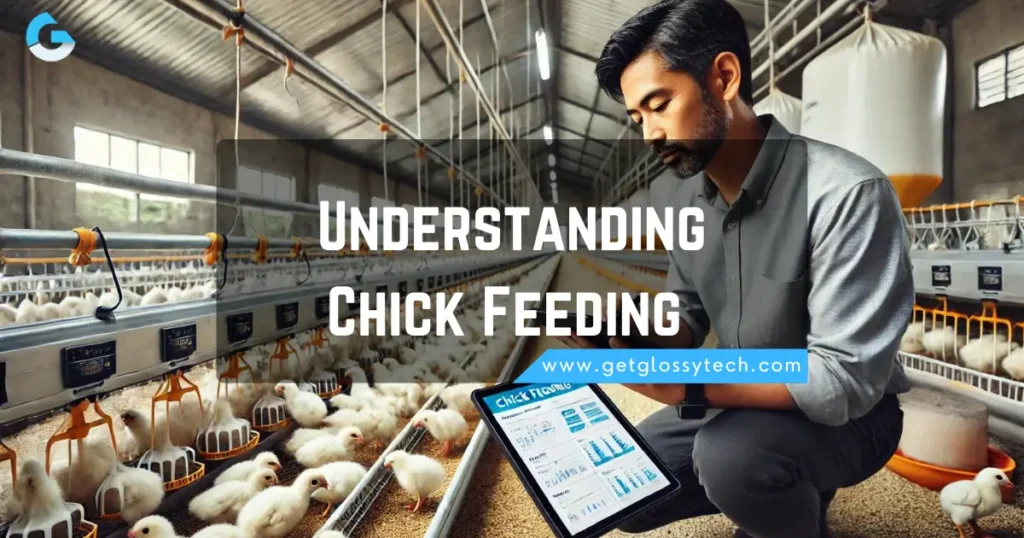
Starting a poultry farm business means paying close attention to how you feed your chicks. Proper poultry feed with a balanced mix of nutrients can prevent diseases like dermatitis, paralysis, and liver syndrome.
Here’s what you need to know:
- Choose feed with key ingredients like maize and Azolla for good nutritional value.
- Monitor moisture content to avoid fungus growth in feeds.
- Adjust feed based on the chicken’s age to ensure the right calories and prevent nutrient deficiency.
- Sourcing from a trusted company can reduce product costs and improve overall production.
These steps can help keep your chickens healthy, ensuring higher-quality eggs and meat, and keeping your poultry farm business on track
9: Promote Your Farm Goods

To grow your poultry business, start with clear marketing on social media focused on your target consumer and niche market. At the initial stage, sell your poultry farm products in nearby markets to reduce travel time and costs.
This approach connects you with local chicken farmers and meets demand efficiently, helping to build a loyal customer base.
For marketing poultry products, use the cheapest means like flyers to reach the masses. A creative flyer design captures recipients’ attention, making them more likely to buy your farm products. Distribute them where your target consumer shops, so you can build trust and boost your poultry farm business.
10: Develop a Plan for Managing Poultry Health

Starting a poultry farm business requires careful planning to avoid severe loss. A good health management plan is essential to keep poultry birds healthy and reduce the mortality rate.
Here’s a quick guide:
- Ensure clean drinking water and maintain proper hygiene to prevent common poultry diseases.
- Set up a light management plan with at least 16 hours of light. Use yellow light, red light, or orange light to create a calm environment.
- Work with a lighting expert to make the best arrangements. Avoid 24 hours of lighting, as it can stress the birds.
- When buying chickens, start small, especially if you’re new to the poultry farm business, and choose the right broiler breeds to minimize risk.
Keeping your poultry farm well-managed will help ensure the health and productivity of your chickens!
11: Act Fast When Birds Are Ill
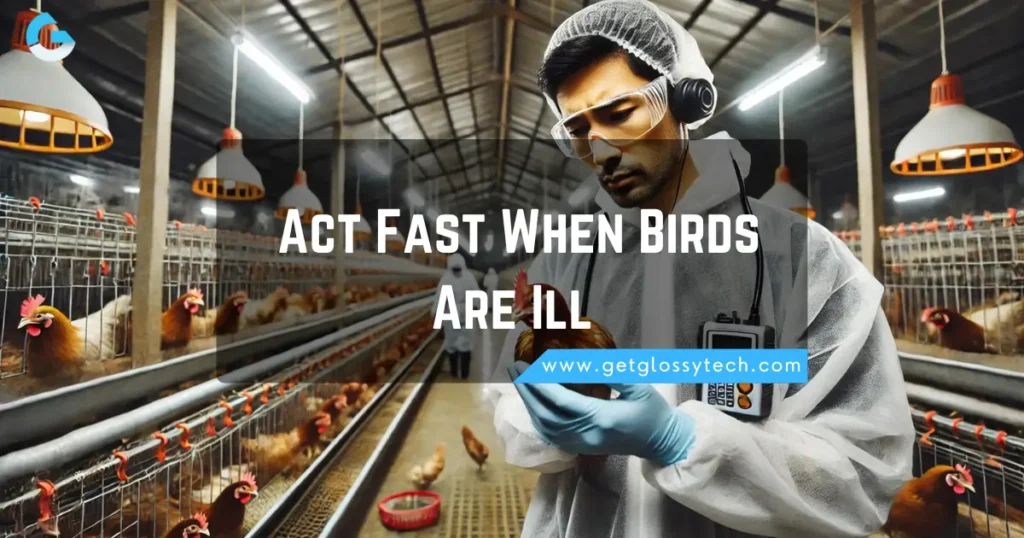
Running a poultry business means keeping your birds healthy, so you need to inspect them regularly. This helps you spot any sick chickens early before the disease spreads rapidly across your poultry farm.
Look out for unusual behaviour or appearance, like a bird that’s too quiet, not eating, or has strange movements. These signs can signal serious risks like infection, pest issues, or illness. Always have a vet on call for a quick diagnosis and treatment plan to treat any illness immediately.
Make sure to conduct all checks safely to avoid spreading germs. A good treatment strategy not only saves your birds but also protects your business. Ignoring these steps could mean big losses, so take action as soon as you see a problem.
12: Immunize Broiler Raising
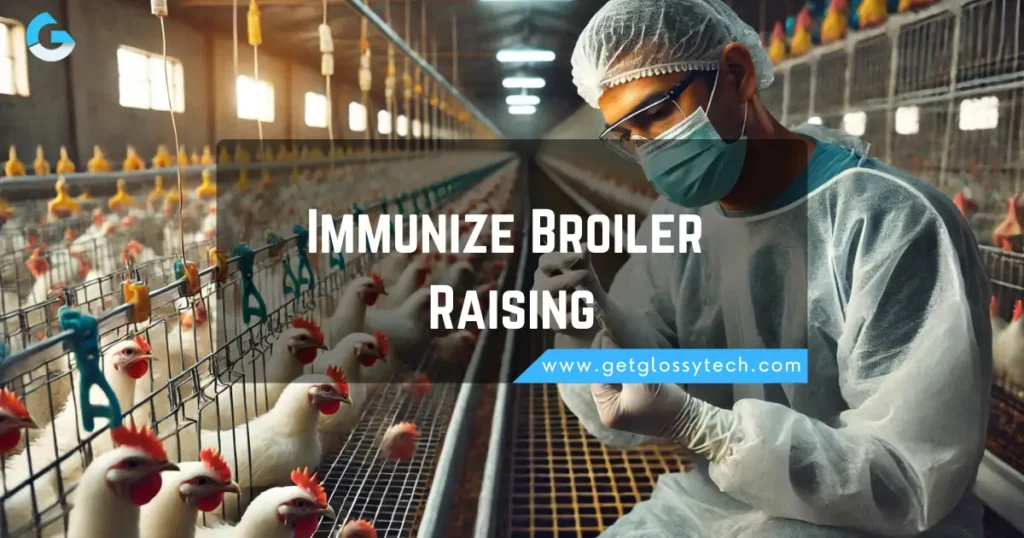
To run a successful poultry farm business, keeping your poultry birds healthy is key. Regular vaccination protects against poultry diseases like
- Mycoplasmosis Disease
- Viral neoplastic Disease
Use bacterial vaccines, viral vaccines, and mycoplasma vaccines for adult chickens and baby chickens. Common ones include
- Marek’s vaccines
- Gumboro live vaccines
- RDV vaccine
- Cholera vaccines
Some vaccines, like fowl pox vaccines, come in liquid form or tablet form. Always consult a vet doctor to avoid potential harm and ensure the right treatment.
Protect Ducks and Other Birds
Ducks, swans, and geese need specific vaccines like duck plague vaccines for duck viral enteritis (DVE), which is a contagious disease. Ensure vaccination for chickenpox disease with fowl pox vaccines and protect against respiratory infections caused by mycoplasma.
Stay updated with knowledge on vaccination methods, and always use small vials or appropriate forms, consulting other poultry farmers to reduce the spread of viruses like bumboo disease and contagious diseases among your chickens.
13: Launch Your Business Online

Your poultry farm business needs a strong online presence to attract potential clients. Many people search for poultry products like chicken in their town using search engines.
A dedicated website with the right elements—like colours, typeface, and images—makes a positive impact. Your business site should be user-friendly, navigational, and loadable to avoid losing potential customers.
Stand Out in the Poultry Industry
Include key pages like home, landing, and an About page with crucial information on your poultry farm business. Keep your website updated with relevant information to build trust and authority.
Adding blogs about poultry can educate people and show your expertise. Ensure your website opens immediately to keep clients engaged and provide a positive impression.
14: Adhere to Regulations for Poultry Farming

Poultry farming involves navigating various rules and regulations to avoid legal issues. Whether in Europe, the UK, or the US, you must comply with strict farm laws.
Start by checking with local government agencies for necessary legal information. Setting up your business as an LLC can offer benefits for startups. Always ensure your poultry farm follows all legalities to operate smoothly and legally.
15: Hire Experts

Starting a poultry farm business is labour-intensive and requires handling various nuances. Hiring experienced people like an administrative officer, manager, or accountant is crucial to managing day-to-day affairs and executing your poultry farm business plan efficiently.
- Hire professionals for specialized roles.
- Use experienced people to oversee administrative and farming tasks.
- Involve a manager to handle day-to-day affairs and keep operations smooth.
Save Cost on Staffing
To save costs, consider using technology and strategic staffing. A versatile manager can take on multiple roles, reducing the need for extra hires and keeping the business lean.
- Combine roles to minimize staffing needs.
- Implement technology for efficiency.
- Focus on essential hires to balance costs and quality.
16: Promote Your Farm Far and Wide

Promote your poultry farm business by talking to friends, neighbours, and potential clients about your farming plans. Share what makes your farm unique and ask for advice on the latest poultry farming techniques. Building trust through conversations can help spread the word about your upcoming poultry farm business.
Spread the word on social media platforms like Twitter and Facebook. Post interesting content, tweet updates, and share images of your daily activities to boost engagement. This will keep your followers informed and excited about your farm.
To maximize your reach, consider hiring experienced professionals to help you build and execute your poultry farm business plan.
Obstacles to Starting a Poultry Business
Poultry farming is booming as one of the top moneymakers today. However, it’s crucial to be aware of the risks involved. After all, no business comes without its own set of challenges and uncertainties.
1: Widespread Disease Outbreak

Poultry farms are highly sensitive to environmental changes, making diseases and infections a big risk. To keep birds healthy, use an automatic manure cleaning system, disinfectant, and a fogging machine.
A reliable ventilating system is essential to prevent bacteria from spreading. Maintaining a clean poultry farm with these tools ensures better care and reduces the chance of outbreaks, keeping your firm strong.
2: Absence of Government Support

Starting a poultry business can be challenging, especially when government help is absent. Without backup, you’ll need to prepare for sudden obstacles and potential loss. It’s critical to run your operations properly and handle problems alone.
Relying on experiences and seeking help from others can be a valuable bonus. The key is to stay adaptable and proactive to overcome difficulties and keep your business on track.
3: Substantial Initial Investment

A substantial initial investment is required for land, equipment, and facilities. Proper research helps in estimating the cost of chickens, cages, and other poultry equipment. You must also account for labour and ongoing production costs.
Securing sufficient funding and planning for extra expenses is crucial to managing the rate at which you need to save and pay for each element of your business. Ensuring you have adequate capital and a solid plan will set your farm up for success.
4: Additional Contributing Elements

Starting a poultry farming business involves overcoming several obstacles. Small-scale poultry farmers often face the high cost of poultry food, chicken cages, and poultry farm equipment. Managing these factors with little capital can be challenging. Even with proper vaccination, the cost of vaccines and ration can affect your profit.
Other factors like economizing and the ability to afford necessary items contribute to the success of your farm. Handling these contributing elements and buying essentials like poultry food and vaccines is crucial. Planning and gathering resources wisely can help you manage poultry farming efficiently.
FAQs: How to Start a Poultry Business
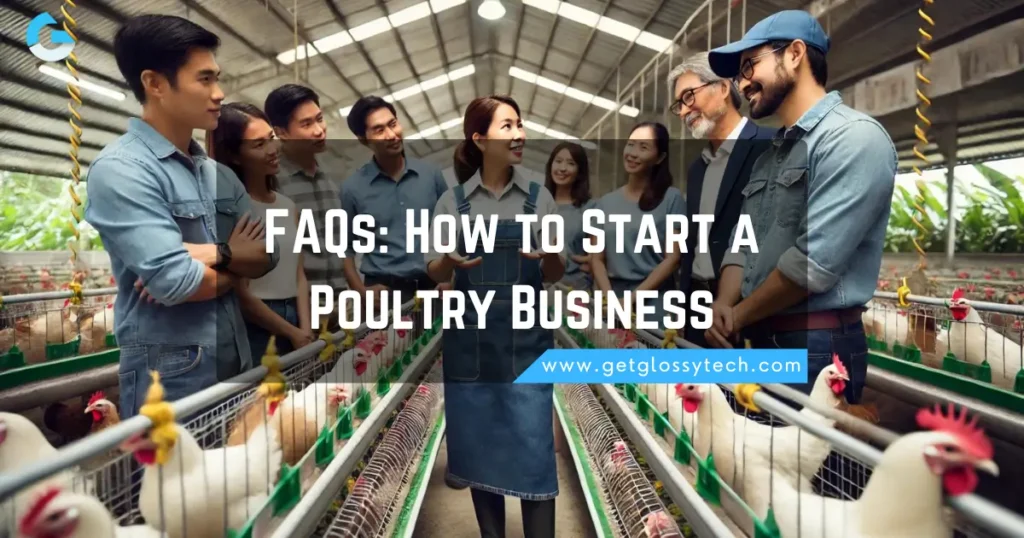
How profitable is poultry?
Poultry farming can be quite profitable, especially if managed efficiently. The profitability largely depends on factors like the cost of feed, the health of the birds, market prices, and the scale of the operation. Farmers who effectively control costs and maximize production through good management practices tend to see higher returns on their investments.
How much money do I need to start a poultry farm in Pakistan?
Starting a poultry farm in Pakistan typically requires an initial investment ranging from PKR 500,000 to PKR 2,000,000. This cost covers land, construction, chicks, feed, and equipment. Prices can vary based on the size of the farm and the type of poultry raised.
What are 5 examples of poultry?
Five common examples of poultry that are often raised on farms include:
- Chickens – Known for both egg and meat production.
- Turkeys – Popular for their meat, especially during festive seasons.
- Ducks – Are Raised for their eggs, meat, and sometimes feathers.
- Geese – Valued for meat, eggs, and down feathers.
- Quails – Small birds are reared mainly for their eggs and meat.
Which breed of chicken is most profitable?
The Cornish Cross is often considered the most profitable breed of chicken for meat production due to its rapid growth rate and efficient feed conversion, allowing farmers to quickly turn a profit.
For egg production, the Leghorn chicken is highly regarded because of its ability to produce a high volume of eggs consistently.
Final Thoughts: How to Start a Poultry Business

When venturing into a poultry farm business, every step from identifying your poultry niche to analyzing the market and managing financial aspects plays a critical role. Ensuring you choose the right type of bird to raise and finding an ideal farm location are foundational decisions that dictate much of your farm’s future success.
Marketing your farm effectively is also paramount. Spread the word with a striking farm logo and robust marketing strategies to carve out your space in a competitive market.
Remember, the sustainability and profitability of your business hinge not just on how well you manage your farm, but also on how well you connect with your community and customers.

